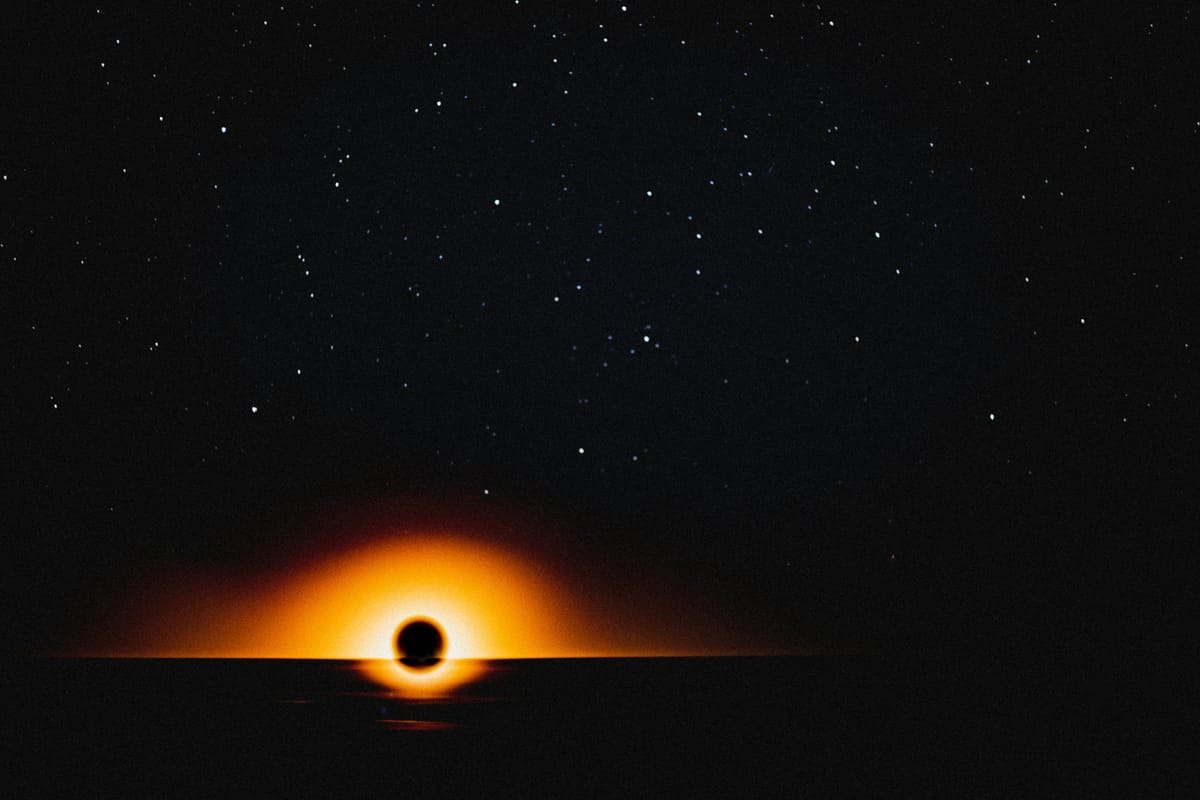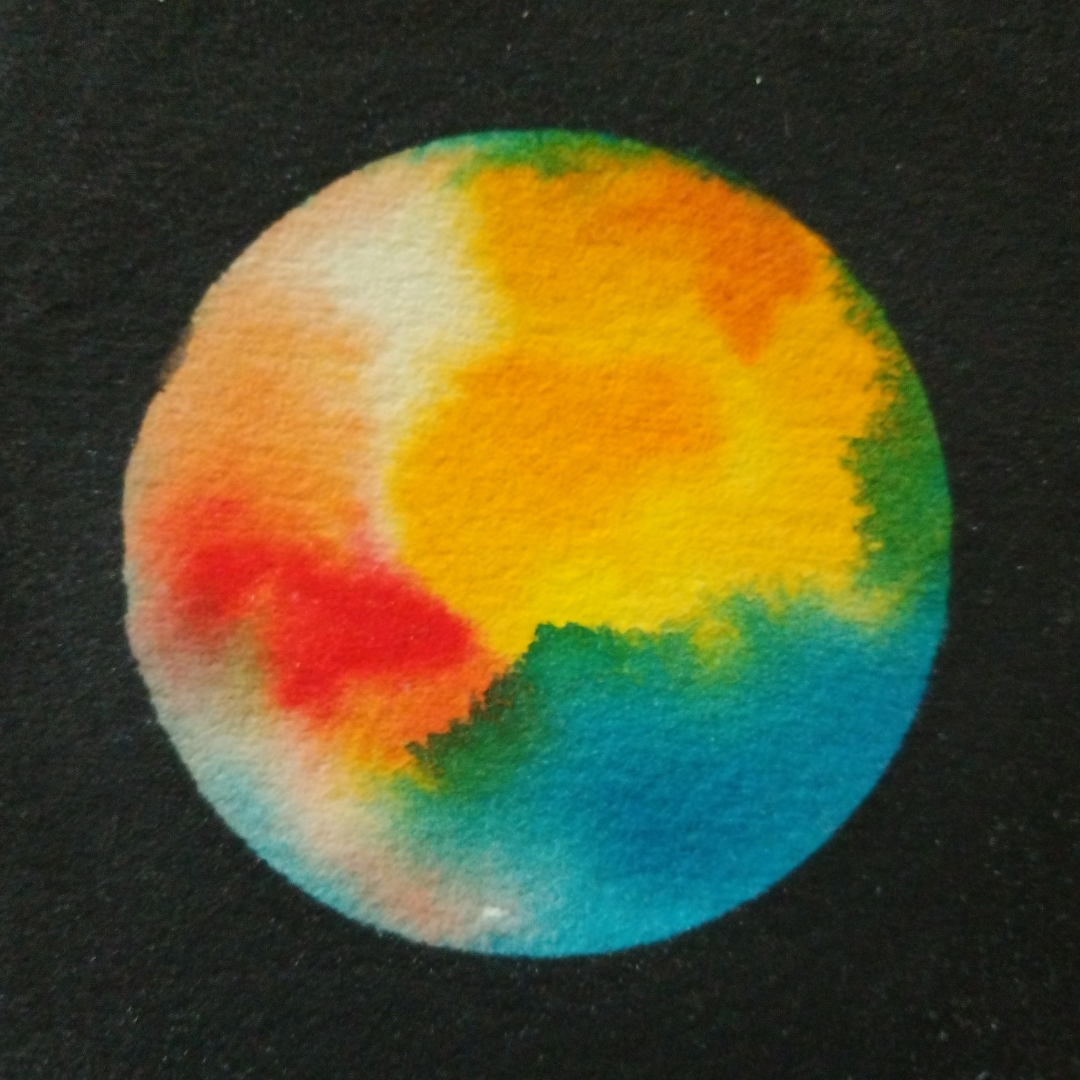Into the Abyss

(If you're into this sort of thing, I suggest reading this newsletter with Bon Iver's song Holocene.)
For many of us, last week's election results have generated intense experiences of fear, rage, overwhelm, and disorientation.
I, for one, have spent much of my time looking for space to process, make sense of things, and figure out what the changing political landscape means for my professional and personal work in the world.
For whatever it's worth, I'd like to devote this newsletter to a few of my own reflections on the nature of what we are confronting politically - not only in the United States, but also globally.
Or - metaphorically - I want to reflect on what it means to confront an abyss.
The word abyss has different meanings. Webster's defines it in the following ways:
1a: an immeasurably deep gulf or great space
1b: intellectual or moral depths
2: the bottomless gulf, pit, or chaos of the old cosmogonies
I think all of these apply.
I think we stand at the edge of an old order - a tired way of knowing, doing, and being. And while many of us are increasingly aware of how this way of orienting to our relationships and our world is not serving us, it's also what we know. And despite the pain of it, there's also a comfort to it.
Some people would probably disagree with me. They'd say there's really nothing new happening here. This is simply the way things have always been and always will be. Seemingly big changes are simply new iterations of the same basic patterns that have always characterized human nature.
I think those people are wrong.
I don't think things have always been like this, and I don't think they're going to stay like this. The question in my mind is not whether we are going to fundamentally change, but how and when.
Mythically, an abyss is often represented as a kind of terrifying unknown. Possibly a place of evil. It is what sits on the other side of the event horizon. The place beyond the singularity.
Other names for the phenomenon I'm pointing to include "the void," "emptiness," "the unknown," or "no-thingness."
It is represented as The Nothing in the 1980's film The NeverEnding Story (based on a novel of the same name), and it is portrayed as a mysterious force slowly destroying the mythical universe of Fantasia.
In The NeverEnding Story's most powerful scene, G'mork, a wolf-like beast who works as an agent of The Nothing, explains why The Nothing is destroying Fantasia:
"...people have begun to lose their hopes and forget their dreams, so The Nothing grows stronger."
When the protagonist Atreyu insists G'mork explain exactly what The Nothing is, G'mork says...
"It's the emptiness that's left. It is like a despair, destroying this world. And I have been trying to help it."
"But why?!?!" protests Atreyu.
"Because people who have no hopes are easy to control. And whoever has the control has the power!"
In an extraordinarily short snippet of dialogue that rivals the ability of The Hunger Games or Orwell's 1984 to capture the political, metaphysical, and emotional realities underlying our times, G'mork articulates an important aspect of the abyss we are entering - it feeds on our own hopelessness and despair.
But that is only one aspect of the abyss. There is another.
The 1989 sci-fi movie The Abyss is about a crew of people who, through a series of unfortunate events, find themselves trapped in an underwater drilling platform at the bottom of the ocean.
The setting in which they attempt to rescue both themselves and the crew of a wrecked submarine is the deep abyss of an ocean trench. But, in a place where they expected only to find extraordinary darkness and possibly death, they encountered something different - something profound.
As they struggle to do what it takes to survive, they run into an entirely different form of intelligent life - one that both awes and inspires them with an entire underwater civilization that humans knew nothing about.
The movie The Abyss highlights the other important aspect of the mythical abyss that it's important to for us to understand now: It contains infinite possibility.
(Obviously, I think Hollywood of the 1980s got a few things right. And apologies for the spoilers for those of you who may have had these films on your to-do lists for the past 30+ years and were just now hoping to get around to them...)
The horrific political shifts we are now witnessing are indeed horrific. And they may well last for sometime. But they are also symptoms of a dying body. The possibly last and terrible gasps of a civilizational organism that's had its hold over too many of us for too long.
As we prepare to continue our work toward a better world, let's not forget that part of that work will involve organizing both literal and metaphorical death doulas to support this organism's ongoing transition. To thank it for the painful ways it has supported us. And to let it know it's time. It can go.
Where there is a massive dying process, there is also a massive birthing process. A massive opening of possibilities worldwide for profoundly different futures.
The most beautiful commitment I heard someone share in the wake of last week's election was a commitment to demonstrate profound love to everyone they came in contact with. To love with intensity. To love with consistency. To love with depth. To love, love, love.
I'll leave you with a series of profound reflection questions from the preface of Vanessa Machado de Oliveira's book Hospicing Modernity, in which she works with her concept of Modernity in a very similar way to how I work with my concept of The Deep Operating System.
de Oliveira asks...
What if racism, colonialism, and all other forms of toxic, contagious divisions are preventable social diseases?
What if the texts, education, and forms of organization we revere have carried and spread the disease, but also contain latent parts of the medicine that can heal it?
What if learning to activate this medicine requires coming to terms with our violent histories; learning to see the world through the eyes of others; and facing humanity in its full complexity, affliction, and imperfection?
What if the purging prompted by this medicine leads us to confront our traumas and learn to let go of fears of scarcity, loneliness, worthlessness, guilt, and shame?
What if collective healing will be made possible precisely by facing - together - the end of the world as we know it?
As much as I am feeling afraid and uncertain, some absurd part of me longs to walk into this abyss together, hand-in-hand with people I love.
Please send me your thoughts, reflections, and reactions at james.boutin@mailfence.com I love hearing from you.
Until next time, lots of LOVE,
James
www.jamesboutin.com
Upcoming Events
"Navigating Conflict Across Differences of Privilege and Identity"
A three-hour in-person workshop on December 3 that's still in the works.
Stay tuned for more details on my events page.
